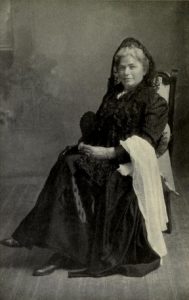Whishaw, Elena Maria
Elena Maria Whishaw (1857-1937/40) was the widow of fellow archaeologist, Bernard Whishaw, whom she succeeded as director of the Anglo-Spanish-American School of Archaeology. Mrs Whishaw devoted a considerable  part of her life to the search for evidence of Atlantis in Andalusia and in particular around the town of Niebla and the city of Seville. However, she was convinced that the region had been colonised by Atlanteans from Libya. She published her discoveries in a 1928 book[053] that has now been reprinted after many years. The region attracted Atlantis seekers following the views of Juan Fernandez Amador de los Rios published in 1919. Adolf Schulten the German archaeologist also spent a considerable time searching in the area during the first half of the 20th century.
part of her life to the search for evidence of Atlantis in Andalusia and in particular around the town of Niebla and the city of Seville. However, she was convinced that the region had been colonised by Atlanteans from Libya. She published her discoveries in a 1928 book[053] that has now been reprinted after many years. The region attracted Atlantis seekers following the views of Juan Fernandez Amador de los Rios published in 1919. Adolf Schulten the German archaeologist also spent a considerable time searching in the area during the first half of the 20th century.
Apart from her interest in history and archaeology, Whishaw also studied local folk arts, in particular embroidery. She lived in Niebla until her death, where she founded a small museum, which unfortunately is now rather neglected.
In 1926 she discovered a prehistoric water conduit, which solved the serious problem of supplying the local population. For all that and other good works, she was named ‘adoptive daughter of Niebla’ in 1927.
In March 2018, the local Niebla Council organised an exhibition of artefacts representative of her life’s work and her contribution to the local community.(a)
